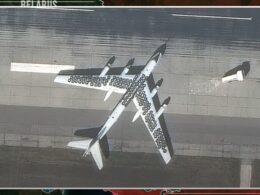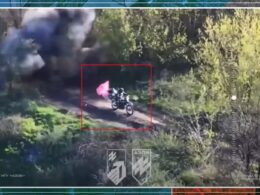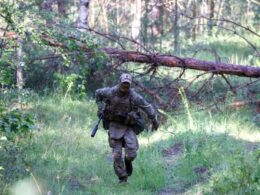On 27 August, there are many updates from the Tokmak direction. Upon establishing complete control over Robotyne, the Ukrainians wasted no time in pressing forward. Their primary objective shifted to the next village in line – Novoprokopivka.
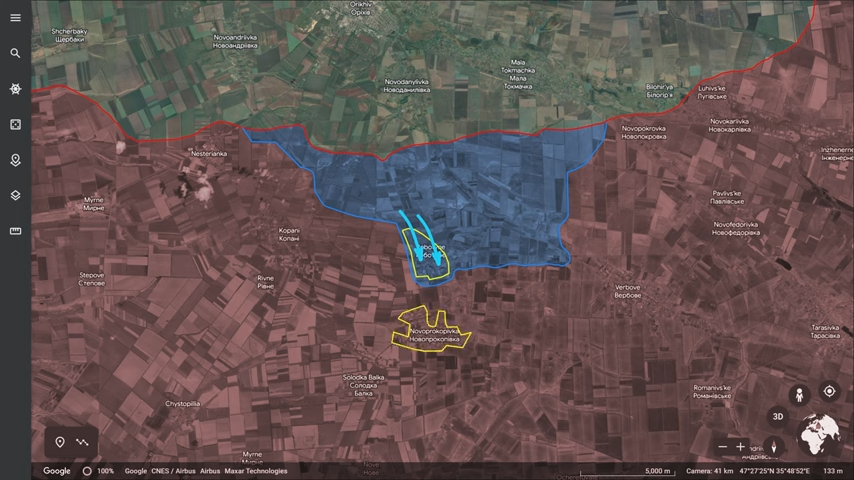
However, the shortest path to the settlement wasn't necessarily the quickest. The Russian forces erected multiple fortifications between Robotyne and Novoprokopivka. While these trench networks weren't as extensive as the ones already traversed, they still impeded progress significantly, preventing the Ukrainians from advancing rapidly.
Ukrainian fighters reported engaging Russian personnel with both regular and cluster shells, resulting in substantial casualties. A member of the 24th Assault Brigade conveyed that Russian reinforcements, to the tune of 60 truckloads of troops daily, have been arriving. Consequently, the staggering losses sustained by the Russians in this limited section of the front line come as no surprise.

The desperate efforts to slow down the Ukrainians are understandable – the capture of Novoprokopivka would position the Ukrainians at the threshold of the second line of defense. Consequently, the Russians are holding onto several trench networks and conducting regular bombardments on Robotyne. This strategy aims to prevent the accumulation of Ukrainian forces substantial enough to mount a potent attack.

Confirmed geolocated footage attests to the routine nature of these bombardments, with some reports indicating up to 8 such attacks by the Russians each day. Unfortunately for Russians, Ukrainians attacked from a different direction.

Due to persistent shelling in the southern part of Robotyne and continuous counterattacks from the Russian side, the Ukrainian command realized that advancing in this region would come at an excessively high cost. As a result, the Ukrainians feigned attacks near Robotyne to play into Russian expectations while quietly amassing forces in the tree lines east of Robotyne.

By liberating substantial fields, the Ukrainians accumulated a critical mass of troops without attracting Russian attention until it was too late. They then commenced a southern push parallel to the Robotyne-Novoprokopivka line, swiftly gaining ground.

Russian sources later released footage illustrating how Russian artillery targeted Ukrainian positions over 2 km south of their previous locations. The reason behind the Ukrainians' rapid advancement was simple: they moved into the lowlands, capitalizing on topographical advantages. Despite being tactically disadvantaged, the Russians failed to establish robust defensive positions to repel the Ukrainian assault effectively.
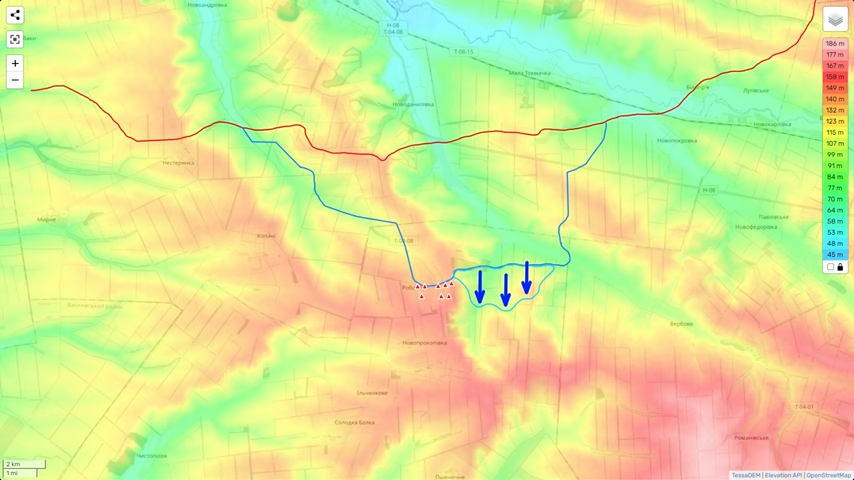
While the Russians laid numerous minefields, the Ukrainians devised a clever tactic to address this challenge. Capitalizing on the day's heat, which caused metal objects to absorb heat more readily than the ground, the Ukrainians employed drones equipped with thermal cameras. This approach allowed them to map the minefields effectively, identifying safe pathways or narrow sections.
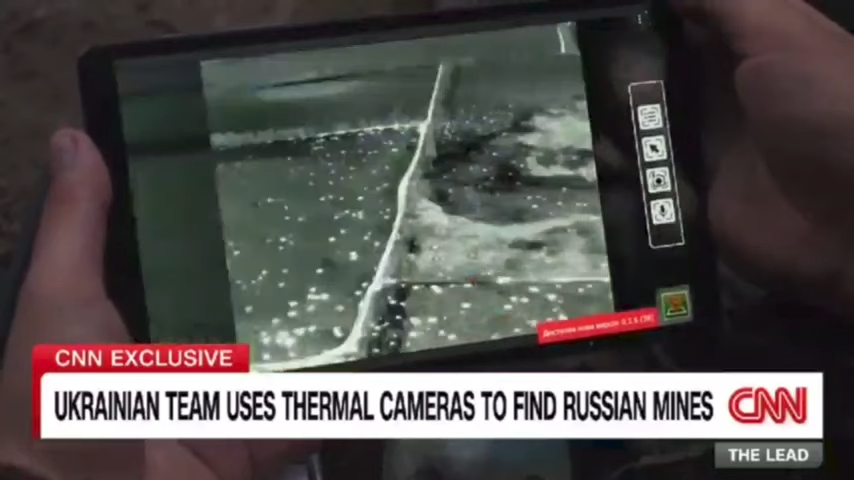
Subsequently, demining equipment was dispatched to clear safe paths, facilitating the movement of troops across the minefields and enabling assaults on Russian positions. Additionally, the Russians' focus on shelling the southern part of Robotyne granted the Ukrainians greater operational freedom in this area.

After repeating this process for several days, the Ukrainians approached Novoprokopivka from the east and executed their initial assault on the village. Recent Russian reports indicated that the 56th and 108th regiments had lost crucial positions in the village's eastern part, potentially indicating the loss of Novoprokopivka.

However, despite alarmist reports from certain Russian media sources, it remains premature to declare Novoprokopivka fallen. Nevertheless, in recent days, Ukrainian forces have shifted their operational area southward by as much as 4 km.

As observed, the Ukrainians are employing the same strategy as in the case of Robotyne. They advance in the lowlands where the Russians have not fortified positions extensively. They secure control over small forests and dense tree lines, using these vantage points to establish fire control over settlements before entering them.

Should the Ukrainians establish a stable bridgehead within the village and drive the Russians out of the western side, Russian forces would consequently forfeit control over all trenches and fortifications to the north of Novoprokopivka. Moreover, the Ukrainians would simultaneously breach the second line of defense along a 12-km section.
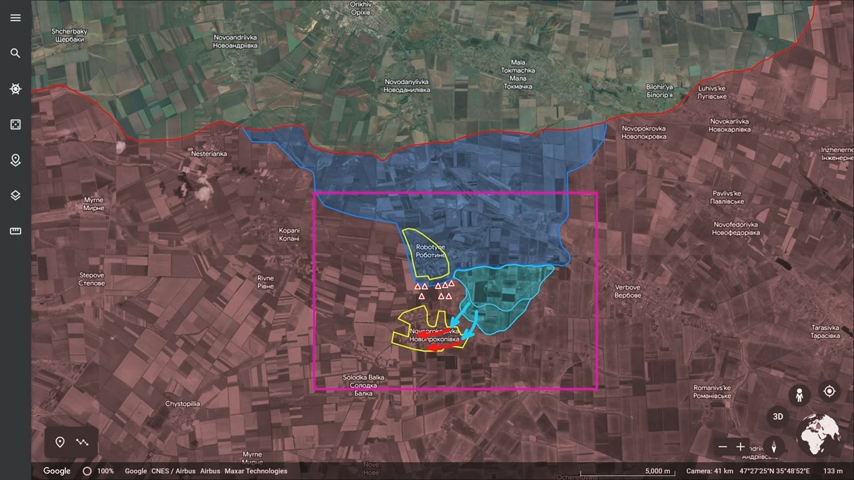
This development spells adversity for the Russians, as they would need to distribute their forces evenly along all sections to defend against Ukrainian attacks. This inevitably results in thinly spread troops, necessitating the retention of as many soldiers as possible across all fronts at all times.
On the other hand, the Ukrainians merely need to identify or create a vulnerable point and breach the line. Once this hurdle is overcome, they can methodically clear the line by attacking from three sides.

In our daily frontline report, we pair up with the military blogger Reporting from Ukraine to keep you informed about what is happening on the battlefield in the Russo-Ukrainian war.

